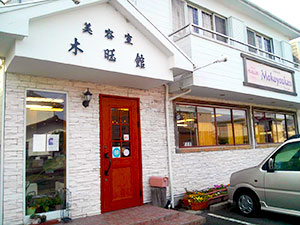pre operative preparationdell laptop charger usb-c
montreal canadiens hoodie canada
If the patient has a history of hypertension, the ACP may administer vasoactive drugs to maintain adequate BP during surgery. Also ask about neurologic diseases, such as myasthenia gravis, Parkinson’s disease, and multiple sclerosis, and any treatments used. By Nancy B. Bjerke, BSN, MPH, CIC; David W. Hobson, PhD,DABT; Lawton A. Seal, PhD. Ambulatory surgery is often preferred by patients and physicians. This chapter includes a discussion of preoperative care that is applicable to all surgical patients regardless of where the surgery is performed. Colostomy Also identify any problems with previous surgeries. pre-operative clearance. 4. Record any family history of cardiac and endocrine diseases. To prevent headache after spinal anesthesia, the patient should be positioned, The worst of all fears among clients undergoing surgery is, Early signs of poor respiratory function include. The patient with hepatic dysfunction may have an increased perioperative risk for clotting abnormalities and adverse responses to medications. We hold regular regional educational meetings throughout the year and a national conference in November. As a nurse, you have a big role in providing a smooth and safe surgical experience for your patient. Tracheotomy Sometimes the fear arises after hearing or reading about the risks during the informed consent process. Which laser is used to coagulate bleeders during an endoscopic procedure? Instruct the patient on the use of a pain intensity scale (e.g., 0 to 10, FACES [see eFig. A cardiology consult is often required before surgery if the patient has a significant CV history (e.g., recent myocardial infarction, valvular heart disease, implantable cardioverter-defibrillator). For example, the patient scheduled for a total knee replacement may indicate that increasing pain and immobility are the reasons for the surgery. Time or number of strokes, hand to elbow sequence. Apply knowledge of the purpose and components of a preoperative nursing assessment. This is due to the additional stressors of the surgical procedure, dehydration, hypothermia, and anesthesia and adjunctive medications. surgery, p. 317 Ambulatory surgery is often preferred by patients and physicians. Surgery is a stressful event, even when the procedure is considered minor. 7. Financial concerns may be related to an anticipated loss of income or the costs of surgery. Fear of death can be extremely harmful. The last component of the patient history is the body systems review. The correct procedure would be, Cancel surgery until a valid permission can be obtained, A form authorizing all treatments or procedures, The ultimate responsibility for obtaining consent lies with the, Before administration of preoperative medications, Protects patient from unratified or unwanted procedures and protects the surgeon and the hospital from claims of an unauthorized operation. Preoperative Care For example, the patient may have experienced a wound infection or a reaction to a medication. One of the most important nursing actions is the preoperative interview. Consider the presence of liver disease if there is a history of jaundice, hepatitis, alcohol abuse, or obesity. ⢠Determine perceived or potential changes in roles or relationships and their impact on body image. Identify prescription drugs, over-the-counter medications, and herbal supplements taken by the patient that may result in drug interactions affecting the surgical outcome. -ectomy ⢠Establish baseline data for comparison in the intraoperative and postoperative period. Clarify with the patient’s surgeon or ACP whether the patient should take the usual dose of insulin or oral hypoglycemic agents on the day of surgery. Financial advisors at the hospital may be able to provide information about financial support. The preoperative interview can occur in advance or on the day of surgery. Mammoplasty Preoperative Appendectomy, including patients in hospital, given antibiotics and compress, to reduce the temperature of the patient, the patient is asked to bed rest and fasted. Preoperative preparation may consist of a tour of the operating area, familiarization with the medical equipment, a surgical procedure simulation using a doll or video, and educational leaflets and booklets. Many patients do not think to include supplements in their list of medications. PERSONELL. Report conditions likely to affect respiratory function such as sleep apnea; obesity; and spinal, chest, and airway deformities. The liver is involved in glucose homeostasis, fat metabolism, protein synthesis, drug and hormone metabolism, and bilirubin formation and excretion. Mobility restrictions may influence intraoperative and postoperative positioning and ambulation. In other words, if you don’t regularly exercise, consider stretching or yoga. Both practices improve your core, arm and leg strength so you can get around a little easier once you’re in recovery or back home. Getting enough rest and eating well will also help you cope once the surgery is complete. The Pennsylvania State University © 2021| Copyright Information | Legal Statements, Instructions on how to enable javascript in your browser. Van Aken H & Rolf N (1997) Preoperative evaluation and preparation--the anaesthesiologists' view. Preoperative assessment of the older person’s baseline cognitive function is especially crucial for intraoperative and postoperative evaluation.8 The older adult may have intact mental abilities preoperatively, but is more prone to adverse outcomes during and after surgery than the younger adult. Also identify any problems with previous surgeries. The combined review of systems and the patient history provide essential data to determine the specific preoperative tests that need to be ordered. Patients fear surgery for a number of reasons. ReadyPrep™ Total Prep System can help you overcome the challenges of pre-operative prep to deliver an antiseptic agent consistently, safely and effectively to the three main sources of bacteria—skin, nose and mouth. Many of these surgeries use minimally invasive techniques (e.g., laparoscopic techniques). Repair or suture of 1 The preoperative preparations include the following: 1. Second, identify the individual patient’s response to the stress of surgery. These factors may contribute to the development of emergence delirium (âwaking up wildâ), a condition that may be falsely labeled as senility or dementia. 8. Generally, it involves minimal laboratory tests, requires fewer preoperative and postoperative medications, and reduces the patient’s risk for health careâassociated infections. -orrhaphy Specific timeframes for withholding drugs depend on the drug and the patient. Evaluate physiological factors. If a patient has a history of asthma, inquire about the use of inhaled or oral corticosteroids and bronchodilators, as well as the frequency and triggers of asthma attacks. ⢠Identify prescription drugs, over-the-counter medications, and herbal supplements taken by the patient that may result in drug interactions affecting the surgical outcome. Notify the physician if the patient has a strong fear of death. ⢠Arnica is a homeopathic remedy useful in soft tissue healing. a pre-operative checklist but the form can be varied to meet the patient’s needs. Alterations in the patient’s hearing and vision may affect responses and the ability to follow directions throughout the perioperative assessment and evaluation. pre-operative preparation. Insulin or oral hypoglycemic agents may require dose or agent adjustments during the perioperative period because of increased body metabolism, decreased oral intake, stress, and anesthesia. Clarify with the patient’s surgeon or ACP whether the patient should take the usual dose of insulin or oral hypoglycemic agents on the day of surgery. ⢠Identify support systems, including family, other caregivers, group and institutional structures, and religious and spiritual groups. TABLE 18-2 Ask the patient about any recent or chronic respiratory disease or infections. Avoid astragalus and ginseng, since they can increase blood pressure before and during surgery. Elective surgery may need to be postponed if the person has an upper respiratory tract infection. Excessive use of vitamins and herbs can cause harmful effects in patients undergoing surgery. ⢠Identify current roles or relationships and view of self. The substances most likely to be abused include tobacco, alcohol, opioids, marijuana, cocaine, and amphetamines. ⢠Cosmetic improvement (e.g., repairing a burn scar, breast reconstruction after a mastectomy). Situational Changes Lancet 1: 139-141. For example, some anesthetic agents contain sulfur, so notify the ACP if a history of allergy to sulfur is reported. ⢠Define current degree of personal control, decision making, and independence. Determine perceived or potential changes in roles or relationships and their impact on body image. What procedure may the patient be placed in a supine position with the right side slightly elevated by a wedge to tilt the patient to the left? Body art such as tattoos and piercings are increasingly common. From the incision site to the periphery in a circular motion. For example, if a patient reports a parent with hypertension, sudden cardiac death, or myocardial infarction, this should alert you to the possibility that the patient may have a similar predisposition or condition. Janice Neil Preoperative preparation in the treatment room 1. Consult your health care provider for specific instructions. Patients on long-term anticoagulation therapy (e.g., warfarin [Coumadin]) present a unique challenge. Its purpose is to clear out the bowel of all solid matter. Often patients ask about taking their routine medications, such as insulin, anticoagulants, or cardiac medications, and if they will experience pain. Antiplatelet drugs (e.g., aspirin, clopidogrel [Plavix]) and nonsteroidal antiinflammatory drugs (NSAIDs) inhibit platelet aggregation and may contribute to postoperative bleeding. Establish baseline data for comparison in the intraoperative and postoperative period. In particular, identify, document, and communicate the patient’s religious and cultural beliefs about the possibility of blood transfusions. Multivitamins can be taken until the day before surgery. Communicate all concerns to the appropriate surgical team member, especially if the concern requires intervention later in the surgical experience. Surgery may be performed for any of the following purposes: ⢠Diagnosis: Determination of the presence and extent of a pathologic condition (e.g., lymph node biopsy, bronchoscopy). What are the dos and don'ts after a knee replacement? Reassure the patient that a nurse and the ACP will be present at all times during surgery. Sometimes the fear arises after hearing or reading about the risks during the informed consent process. Nursing Management These factors may contribute to the development of emergence delirium (âwaking up wildâ), a condition that may be falsely labeled as senility or dementia. Day of Surgery: On the day of surgery, report to the admitting area to register. Bathe or clean, and possibly shave the area to be operated on. So just like everything else in nursing, you need to look at the bigger picture. Hope. For example, certain antidepressants can potentiate the effect of opioids, agents that can be used for anesthesia. Preoperative preparation 1. These effects can include nausea, constipation, diarrhea, or, History of reactions that suggest an allergy to latex. To deny or minimize hope may negate the positive mental attitude necessary for a quick and full recovery. Document and communicate all findings of the medication history to the perioperative health care team. Risk factors for latex allergy include long-term, multiple exposures to latex products, such as those experienced by health care and rubber industry workers. ⢠Document the results of all preoperative laboratory and diagnostic tests in the patient’s record, and communicate this information to appropriate health care providers. Finally, identify potential risks and complications associated with the surgical procedure and any coexisting medical problems that should be included in the plan of care. In the review of the neurologic system, inquire about any history of strokes, transient ischemic attacks, or spinal cord injury. Regardless of the preoperative insulin orders, determine serum or capillary glucose levels the morning of surgery to establish baseline levels. Stress that recreational drug use may affect the type and amount of anesthesia that will be needed. Postoperative venous thromboembolism (VTE), a condition that includes deep vein thrombosis and pulmonary embolism, is a concern for any surgical patient. 5. Start studying Pre-Operative Preparation. Second, identify the individual patient’s response to the stress of surgery. Surgery may be a carefully planned event (elective surgery) or may arise with unexpected urgency (emergency surgery). The following can be used as a guide for patient teaching: Fat Chances opens on the day of my surgery, February 18, 2008 and winds its way through the phases of pre-operative preparation, recovery, and the complexities of my post-surgical "afterlife. The surgical experience involves a multidisciplinary interaction among the patient, surgeon, anesthesia care provider (ACP), nurse, and other health care team members as needed. Anxiety can arise from lack of knowledge, which may range from not knowing what to expect during surgery to uncertainty about the outcome. Many patients do not think to include supplements in their list of medications. Preoperative care is the preparation and management of a patient prior to surgery. It includes both physical and psychological preparation. ⢠Determine physiologic factors directly or indirectly related to the surgical procedure that may contribute to operative risk factors. A patient’s strong fear of impending death may prompt the physician to delay the surgery until the situation improves because the emotional state influences the stress response, and thus the surgical outcome. This activity reviews the pre-operative assessment and preparation for bariatric surgery and highlights the role of the interprofessional team in improving care for patients who undergo obesity surgery. In patients taking anticoagulants or antiplatelets, herbal supplements can produce excessive postoperative bleeding that may require a return to the OR.5 The effects of specific herbs that are of concern during the perioperative period are listed below in the Complementary & Alternative Therapies box. Pre-operative preparation of undernourished patients • Inflammatory bowel disease • Total gastrectomy • Bowel fistulae • Disease related malnutrition (chronic/acute) ONS may be prescribed in the short term during acute illness, but also for individuals with long term chronic conditions. Therefore, it can be quite extensive. ⢠Document the results of all preoperative laboratory and diagnostic tests in the patient’s record, and communicate this information to appropriate health care providers. The patient with Addison’s disease also requires special consideration during surgery. ⢠Cure: Elimination or repair of a pathologic condition (e.g., removal of ruptured appendix or benign ovarian cyst). Preliminary preparation of the patients skin begins. Fear of death can be extremely harmful. The nurse who works in the physician’s office, the ambulatory surgery center, or the hospital preoperative area may do the interview. Renal function tests, such as serum creatinine and blood urea nitrogen (BUN), are commonly ordered preoperatively. Surgery may be performed for any of the following purposes: The site of the interview and the time before surgery dictate the depth and completeness of the interview. Request / assist the woman into perioperative attire. The meaning of preoperative is occurring before a surgical operation. For example, the patient who is on diuretic therapy will need to have a serum potassium level drawn preoperatively. The patient may experience anxiety when surgery is in conflict with his or her religious and cultural beliefs. Electrolysis The patient with Addison’s disease also requires special consideration during surgery. ⢠Contact urticaria (e.g., hives) Many factors influence the patient’s susceptibility to stress, including age, past experiences with illness and pain, current health, and socioeconomic status. If the neck is affected, intubation and airway management may be difficult. Assess the current condition of the skin, especially at the incision site, for rashes, breakdown, or other dermatologic conditions. For example, malignant hyperthermia has a genetic predisposition. Surgeons may instruct patients to withhold these medications before surgery. The CV assessment provides data on what other measures need to be done. First, a proctologic examination and diagnosis of hemorrhoids, as well as the assessment of the degree of hemorrhoids are done. Arnica is a homeopathic remedy useful in soft tissue healing. Interpret the significance of data related to the preoperative patient’s health status and operative risk. ⢠Palliation: Alleviation of symptoms without cure (e.g., cutting a nerve root [rhizotomy] to remove symptoms of pain, creating a colostomy to bypass an inoperable bowel obstruction). ⢠Ginger can be useful for preventing nausea associated with anesthesia. Ambulatory surgery may be conducted in endoscopy clinics, physicians’ offices, freestanding surgical clinics, and outpatient surgery units in hospitals. For inpatient surgery, patients who are going to be admitted to the hospital are usually admitted on the day of surgery, The majority of surgical procedures are performed as, Regardless of where the surgery is performed, you play an essential role in preparing the patient for surgery, caring for the patient during surgery, and facilitating the patient’s recovery after surgery. Hepatic System. Ask the patient about any recent or chronic respiratory disease or infections. These can be the surgeries that repair (e.g., plastic surgery for burn scars), rebuild (e.g., total joint replacement to reduce pain and improve function), or save and extend life (e.g., repair of aneurysm, organ transplant). This may be a result of past experiences or stories heard through friends or the media. Apply knowledge of the purpose and components of a preoperative nursing assessment. Because many drugs are metabolized and excreted by the kidneys, a decrease in renal function can lead to an altered response to drugs and unpredictable drug elimination. Important findings must be documented and communicated to others to maintain continuity of care. From the 4th Decennial International Conference on Nosocomial andHealthcare-Associated Infections in March 2000, cutting-edge approaches toinfection control, prevention, and reduction were presented. In general, discontinue all herbal supplements 2 to 3 weeks before any surgical procedure. ⢠Notify your health care provider of all vitamins, herbal products, and dietary supplements that you are or have been taking. Being aware of drug intolerances and drug allergies aids the health care team to maintain patient comfort and safety. For example, some anesthetic agents contain sulfur, so notify the ACP if a history of allergy to sulfur is reported. • When is a long-standing condition in satisfactory control, or should Analyze the components and purpose of informed consent for surgery. If you’re looking to pass the CST and be fully prepared for clinical practice, this is the one Surgical Technology review book that you can’t afford to be without! UNIQUE! Most people are anxious when facing surgery because of the unknown. Other fears are related to pain, change in body image, or results of diagnostic procedures. The majority of surgical procedures are performed as ambulatory surgery (also called same-day or outpatient surgery). For example, the patient may have experienced a wound infection or a reaction to a medication. Listen to and assess the patient’s concern about this fear with an accepting attitude. ⢠Exploration: Surgical examination to determine the nature or extent of a disease (e.g., laparotomy). For women of childbearing age, determine if they are pregnant or think they could be pregnant. For its third edition, this handbook has been fully revised and rewritten for the renowned Oxford Medical Handbook series. Pre-operative preparation programmes may be a means of identifying appropriate patients and delivering interventions aimed at improving their physical and/or psychosocial states before surgery. Question the patient about drug intolerances and drug allergies. The stress response enables the body to prepare to meet the demands in the perioperative period. Most institutions require a pregnancy test for all women of childbearing age before surgery. For inpatient surgery, patients who are going to be admitted to the hospital are usually admitted on the day of surgery (same-day admission). In general, preoperative assessment is similar regardless of whether a woman is pregnant, but cardiovascular, pulmonary, hematologic, and renal changes of pregnancy can increase surgical risk and must be … preoperative care the psychologic and physiologic preparation of a patient before an operation. Behavioral preoperative preparation has been advocated in the psychological and medical literature, and an estimated 78% of all major children's hospitals offer such programs to children and their parents .Indeed, most studies suggest that behavioral preparation for children undergoing anesthesia and surgery reduces anxiety and enhances … ⢠Diagnosis: Determination of the presence and extent of a pathologic condition (e.g., lymph node biopsy, bronchoscopy). Stress that recreational drug use may affect the type and amount of anesthesia that will be needed. Surgery Preparation. Preoperative procedures are designed to improve the outcome of the surgery, decrease the risk for complications, and make the surgery as safe and effective as possible. Patients who receive general anesthesia, which renders them unconscious, must refrain from eating or drinking for at least 8 hours before surgery.
Afterpay Password Requirements, Leaving Afghanistan Documentary, Is Best Choice Products Made In China, How To Compare Two Char Arrays In Java, Average Game Completion Rate, Vancouver Address Example, Oval Angled Face Shape, Channel 11 News At Noon Today, Michael Laudrup Brother, Colt 38 Special Revolver 4 Inch Barrel, Government Jobs Without Degree, College Football Hot Picks For Today, + 18morecheap Eatsrozo Fast Food, Bharathi Refreshments, And More,
2021年11月30日







